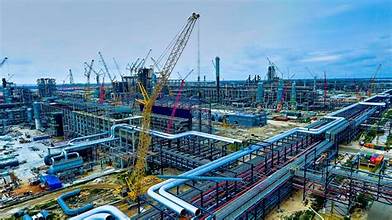“Right now, as we have this refinery working, it will show the true consumption of Nigeria.
“We can track every single loaded truck and we will try as much as possible to track the loaded ships. Trucks, we can tell you where they are just as now some of the products that we do, we can tell you exactly the consumption pattern.”
For years, the accurate measurement of Nigeria’s daily petrol usage has been contentious.
In 2022, figures provided by NNPCL, claiming a daily consumption of 66 million litres, were challenged by various officials, including then Comptroller-General of the Nigeria Customs Service, Hammed Ali, Kaduna Governor Nasir El-Rufai, and former apex bank chief Muhammad Sanusi.
Regarding pricing, Dangote stated that the petrol pricing from his refinery will be determined according to an arrangement approved by the Fede
“As soon as it is finalised, which he (Tinubu) is pushing, once we finish with NNPC, it can be today, it can be tomorrow, we are ready to roll into the market.”
He declared that “it’s a celebration day” for Nigerians and assured all citizens that they “are now going to have good petrol while the engines of your vehicles will last longer. You will not be having an engine issue, which a lot of us were having. It won’t happen at all”.
“The quality here will match that of anywhere in the world; US, America, we will make sure that nobody will beat us in terms of quality,” Dangote said.
Nigeria, Africa’s most populous nation, faces energy challenges, with all its state-owned refineries non-operational. The country is heavily reliant on imported refined petroleum products, with the state-run NNPCL being the major importer of the essential commodities.
Fuel queues are commonplace in the country. Prices of petrol tripled since the removal of subsidy in May 2023, from around ₦200/litre to about ₦800/litre, compounding the woes of the citizens who power their vehicles, and generating sets with petrol, no thanks to decades-long epileptic electricity supply.



